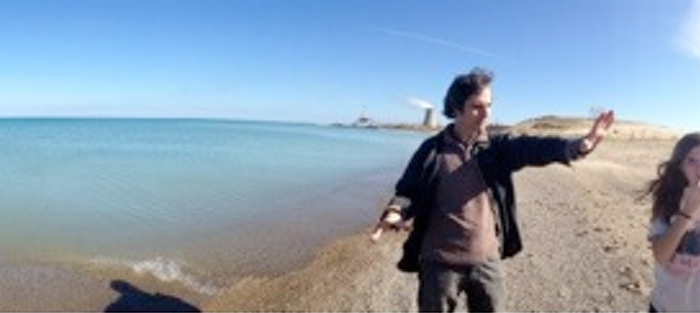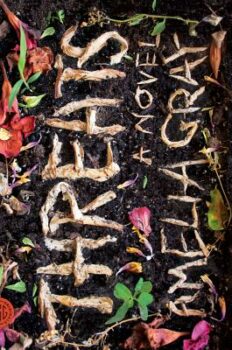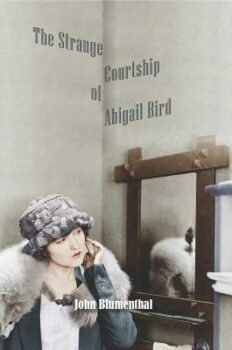Not long after my recent move to Ann Arbor, I found my way to Nicola’s Bookstore, one of the town’s literary havens. On the Staff Picks shelf were several books by Peter Markus. “This guy is doing something nobody else is,” said the bookseller, pulling back the cover of We Make Mud and pointing to the first lines:
The river was not far from the place we called town. It, our town, it was a dirty river town with a dirty river running through it. Town, it was mostly just a two-way road cutting through the middle of the place where the all-by-itself traffic light was always blinking from two sides of it yellow and from the other two sides of it red.
During my first year in Michigan, I was granted a Civitas fellowship through the Helen Zell Writers Program and found myself working with InsideOut Literary Arts Project, a program that nurtures and encourages the creative writing processes of students in Detroit Public Schools. During our orientation, none other than Peter Markus, a senior writer with the program, stepped through the door to lead the teacher training workshop, which he did with a calm and quiet wisdom. That day, my colleagues and I walked away remembering Peter’s gentle encouragement on how to find ways to make the children’s work sing.
Markus was recently honored by the Kresge Foundation, which awarded him a fellowship for artists and writers of merit living and working in Detroit. Indeed, his work sings. His prose playfully invites repeated words to speak in many different ways; the meanings of words evolve and change. Each sentence digs deeper until words shift into unfamiliar wonder. As he told us to do with our students, Markus rediscovers the meaning of “play” in his work. It is as though he is following sounds over water, listening, rather than confining the sounds and meanings of words to symbols on pages.
Markus is the author of a novel, Bob, or Man on Boat, as well as three books of short fiction, the most recent of which is We Make Mud. His stories and poems have appeared in places such as Chicago Review, Black Warrior Review, Quarterly West, Alaska Quarterly Review, Massachusetts Review, Unsaid, New York Tyrant, and Puerto del Sol, among others. A new book of fiction, The Fish and the Not Fish, is forthcoming from Dzanc Books in July. He lives in Michigan where he teaches as the Senior Writer with the InsideOut Literary Arts Project of Detroit.
When I heard he had a new book releasing, I invited Markus to have a discussion about his approach toward writing. As an emerging writer myself, I was curious about his thoughts on the connections between sounds and words, the purposes of transformation in stories, and how he makes his own work sing.
Interview
Nina Buckless: What is a story to you?
Peter Markus: A story is a room in a house I sometimes wake up inside. The best stories are rooms that I’ve never been in before and yet inside them I feel strangely at home.
And, in your collection We Make Mud, you revisit stories and words by exploring different angles and perspectives.
A story is like a river in that it is never the same story twice, even if and when it looks like it might be on its surface. Even a word is ever changing, never the same word twice.
Is this why there is a feeling of uninhibited exploration in your prose?
One day I sat down and wrote a sentence that I liked because I liked the words that were in that sentence. I liked the way the words in that sentence sounded, and I liked the way the words looked together, and I liked the world that these words seemed to conjure up. Then I wrote a sentence that was born out of that first sentence and a sentence that then came sibling out after, and after a while these sentences were saying and writing themselves, and I knew as I listened that even the space between the words was as beautiful and important as the words themselves. I always wondered what Rilke was getting at when he wrote, “Perhaps we are here if only to say: house,/ bridge, fountain, gate, pitcher, fruit-tree, window—/ at most: column, tower… But to say them, you must understand,/ oh to say them more intensely than the Things themselves/ ever dreamed of existing.” I found the words that were mine to say and mine to make with and mine to be a maker of. Or maybe I finally found possession of the pencil that was mine and did not belong to anyone else before I took it up into my hand and lifted it to my ear and then listened close to what and how it wanted me to do our saying.
The musicality of your prose is rhythmically rich. There is an underlying timbre and resonance to it. How does sound play into your work as a writer?
We learn early on as children that the alphabet is a song. We sing what we point at and what we see. I want to write stories, or sentences, or words the way a child first comes to language. Each letter as a landscape, a symbol, each letter a sound, each word a world in and of itself. Language as a playground. And if I don’t hear the beat of a shaman’s drum then I know the dead are asleep in their not-so-shallow graves.
In your collection We Make Mud, that there are many “rituals” or “acts” revisited between the brothers, such as: seeing father wearing the same boots, going fishing, eating fish, cleaning fish, hammering nails, the use of wood, the purposes of mud, interacting with a river.
Writing a sentence is an act, a ritual, a prayer, a dance. When I’m immersed in the act of sentence-making, the hope is always that what the sentences are making and pointing to and conjuring up will take on the feel of the ritualistic. I’ve heard the sound of my own voice say it more than once: Be a shaman, or don’t be at all.
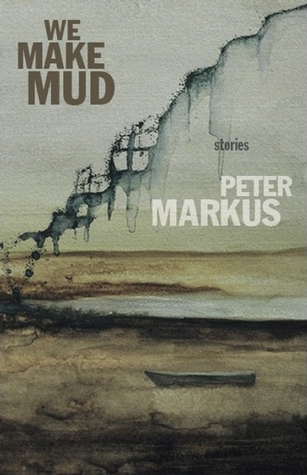 Faulkner once mentioned at The University of Virginia that he put off the actual act of sitting and writing for as long as possible. In this way, he also suggests that all of his daily living experiences were a part of the act of his writing.
Faulkner once mentioned at The University of Virginia that he put off the actual act of sitting and writing for as long as possible. In this way, he also suggests that all of his daily living experiences were a part of the act of his writing.
I’m sure I could be made to believe just about anything that Faulkner offers up as a way to get things done. I’d be sure to believe him that a mason jar full of water was moonshine if he said that’s what it was. Just like when he wrote the sentence “My mother is a fish,” I became a convert to what a sentence might be able to say. To be a writer one must find pleasure in the act of sitting. That much is for sure. I myself don’t place quite as much belief in the actual act of thinking. On a strip of paper on my kitchen wall are the words “Thinking is for morons.” I’m much more prone to that way of being in the world, both on and off the page.
Do you find that children approach writing differently than adults?
Children approach writing the way children approach the world: with a sense of the new, the unexpected. Because they don’t know any better, because they don’t yet know what they cannot do, they go most openly into those places where language and invention don’t just live but thrive. A child believes you when you tell them there is a 12-legged octopus living inside your pencil. Most adults might say they believe you but even so they’ll still imagine an octopus that has eight legs. To a child the alphabet is more alive. Each letter is an image, a visual on the wall of a classroom. The letter M, for instance, is a monkey hanging from a tree. P is a pig playing in the mud. For most adults, P is, at most, a tongue sticking out of a mouth. When I tell my students that my mouth is a cave with a fire burning inside it or that my hand is a starfish or that the moon is a fish hook, they open up their mouths, they take the bait, they begin to sing.
Can you speak to your approach on working with the first person “we” voice in this collection?
For these stories, of which there are hundreds, the brothers were always “us brothers” and so even though at times in the narrative the brothers do separate into the singular, they also are most of the time together, hence the plural “we” that makes these boys seem as if they are some sort of conjoined twin. The “us brothers” are in this together. Maybe for many writers writing the first-person plural there is comfort to be found in this sort of fusion. That said, I can offer up little advice to any other writer other than to maybe make sure that there is some sort of connection—cosmic or otherwise—when characters form between them this sort of “we”-ness.
The brothers in these stories create and destroy. For example, the brothers make “Girl” out of mud. A creative transformation occurs.
It goes back to [Wallace] Stevens and his blue guitar. “Things as they are/ Are changed upon the blue guitar.” Nothing is ever what it seems. Mud is more than mud as soon as the word mud makes it more than. Language takes the blank and silent page and makes it greater than by making out of silence song. And of course the common tongue is never enough. As the brothers might say about Girl, about the word girl, is that the word itself needs to be re-written, re-imagined, “with 12 r’s and thirteen u’s and twenty-thousand l’s at the end of girl stretching across the earth.” Or however it is they in their sayings say it.
What we may lose or gain through transformations. Dirt to mud. Live fish to dead fish. Girl to no girl.
Things change. Everything is always changing. The river is never the same river. Or is it? The brothers try to resist that. They want the river to be the same river. They don’t want to change, to move away from this dirty river town with the dirty river running through it, they want to stay, which is what brings them to the backyard scene involving the fish-headed telephone pole to which one brother hammers the hands of the other. And it’s here that things, like fish, they never die, even when they cut off their fish heads the fish keep singing, which is to say they stay forever beautiful.
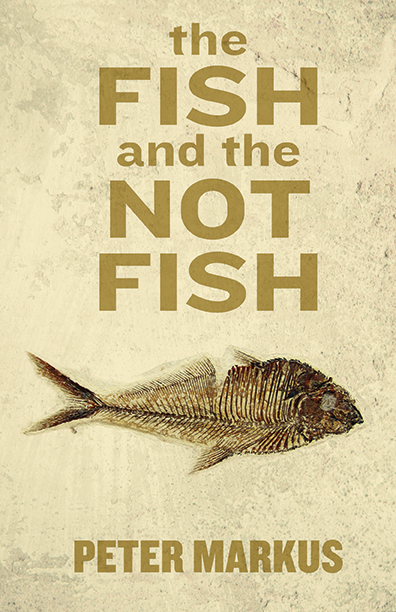 Language is also often expressed through sensory experiences by your characters.
Language is also often expressed through sensory experiences by your characters.
The sentence is the only sensory experience I know anything about when it comes to fish or mud. In other words, I might be able to claim some sort of authority over the words themselves but not the things themselves. The word “fish” refers only to itself and the dominion of its letters. The words “river” or “mud” have little to do with landscapes versed in actuality. In other words, on the river itself, when I step out on it, I am a fish out of water. Those who read my fiction might believe otherwise and therein resides the illusionary power and the ultimate seductive pleasure of fiction. I only can speak about the “fish” that is a fiction, the “mud” that doesn’t really exist.
In the past, I have heard you use a sort of a mantra, a suggestion that there is merit in a writer “honoring their work.”
This means, to trust that the story or book or call it what you will (poem, song) is wiser than its maker and trust and understand that it—story, poem, book—knows where it has to go and how it has to move and to place the authenticity of the work itself over the authority of the name that claims authorship of and to and on and down the side of its spine.
I participated in your on-line writing workshop, which was a challenging and playful experience. You guided us toward working outside of our limitations, encouraging us to journey into areas we might otherwise not have expected. How do you challenge yourself in this way?
I lived and wrote for almost a decade in the skin of “brother” and “river” and the interplay between those two words. I wrote the novel Bob, or Man on Boat in six weeks as a challenge to see if I could write something other than brother this and brother that.
It was Bob, it was man on boat, there was still the river there and yes, I failed—a failure I fully embraced—when the brothers reappeared briefly in a sort of cameo role. I got to know brother, as a word, quite well, it was my mantra, my incantation, the drum, the vertical note of what became my song. To play away from such singing, in The Fish and the Not Fish, I’ve placed a very specific and astringent lingual restriction on myself that makes it impossible for brothers to wash ashore. In this forthcoming collection and in a novel that I’m also working on now all the words on all of the pages must be, in order for them to be placed in a sentence in these books, single syllable words. It’s an absurd venture, I realize, this kind of self-handcuffing, though as a child I was always mystified by the likes of Houdini and how he was able to make himself escape. Maybe I won’t escape. Maybe it’s more of a digging a hole which may or may not be a grave. Either way I can live with whatever failings come my way. I do believe, in the end, that I’ll have written a book of great restraint that is the first of its kind and first-ness is a thing that gives me supreme pleasure.

